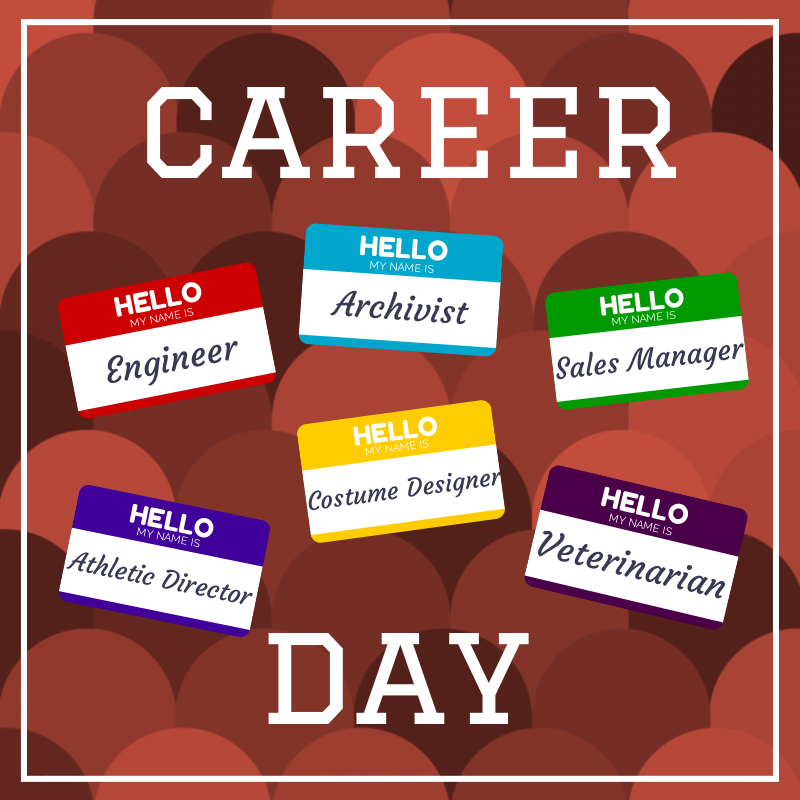 Career Day is one of the highlights of the technology-based CareerSmarts unit, but for the event itself and the lesson right before it, students use face-to-face interpersonal skills instead of using technology. They do, however, build on what they have already learned through technology about multiple intelligences, interests, and careers, and gather more information that will help them create their digital final projects.
Career Day is one of the highlights of the technology-based CareerSmarts unit, but for the event itself and the lesson right before it, students use face-to-face interpersonal skills instead of using technology. They do, however, build on what they have already learned through technology about multiple intelligences, interests, and careers, and gather more information that will help them create their digital final projects.
It takes a lot of work to coordinate Career Day, but it’s so worth it. The kids learn so much and have a wonderful, fun experience. The guests are so impressed with the kids’ knowledge and professional demeanor. And your administrator, colleagues, and parents think you’re pretty great too! After Career Day is over, you’ll be exhausted, but also very fulfilled! No point in you having to re-invent the wheel, so here is everything you need to prepare for and run your own Career Day.
Planning for Career Day
The Nuts and Bolts. At Career Day, which lasts for two hours, each student interviews three different guests in groups of 2-4 students. You need enough guests to make sure that the variety of careers represented reflects all eight multiple intelligences. (To meet this need and to keep the group sizes small, we had 17 guests for 44 students last year.) The guests stay at their interview stations and the kids rotate according to their personal interview schedule. Here is the schedule we use:
| 8:45-9:00 | Guest check in; Students go over schedule, practice professional skills |
| 9:00-9:15 | Intro in Library |
| 9:15-9:20 | Guests go to interview station; Students dismissed to interview 1. |
| 9:20-9:35 | Interview 1 |
| 9:35-9:40 | move |
| 9:40-9:55 | Interview 2 |
| 9:55-10:00 | move |
| 10:00-10:15 | Interview 3 |
| 10:15-10:45 | Reception. Kids in 3rd interview group help guest pack up and escort them to reception. |
Select your date carefully. If you’re doing Career Day as part of the CareerSmarts unit, you will need to choose a date that will ensure that students have already completed the multiple intelligences, career video, and KidSearch lessons, as well as an interview prep lesson (see below). They will need the knowledge gained through those lessons to be able to conduct their interviews.
Identifying Career Day Guests. Since one of the goals for Career Smarts is to get kids to start thinking about college, all of our Career Day guests have a bachelor’s degree or beyond. Of course, not all of our students will go to college, and those that do may meet their career needs with an associates’ degree, but since a good number of our students come from families where no one has ever attended college, this is a great opportunity for them to meet and talk to people (other than their teachers) who have gone to college. I also like to use Career Day as an opportunity for kids to expand their horizons and learn about careers they might not have heard about, and meet people they probably wouldn’t have otherwise.
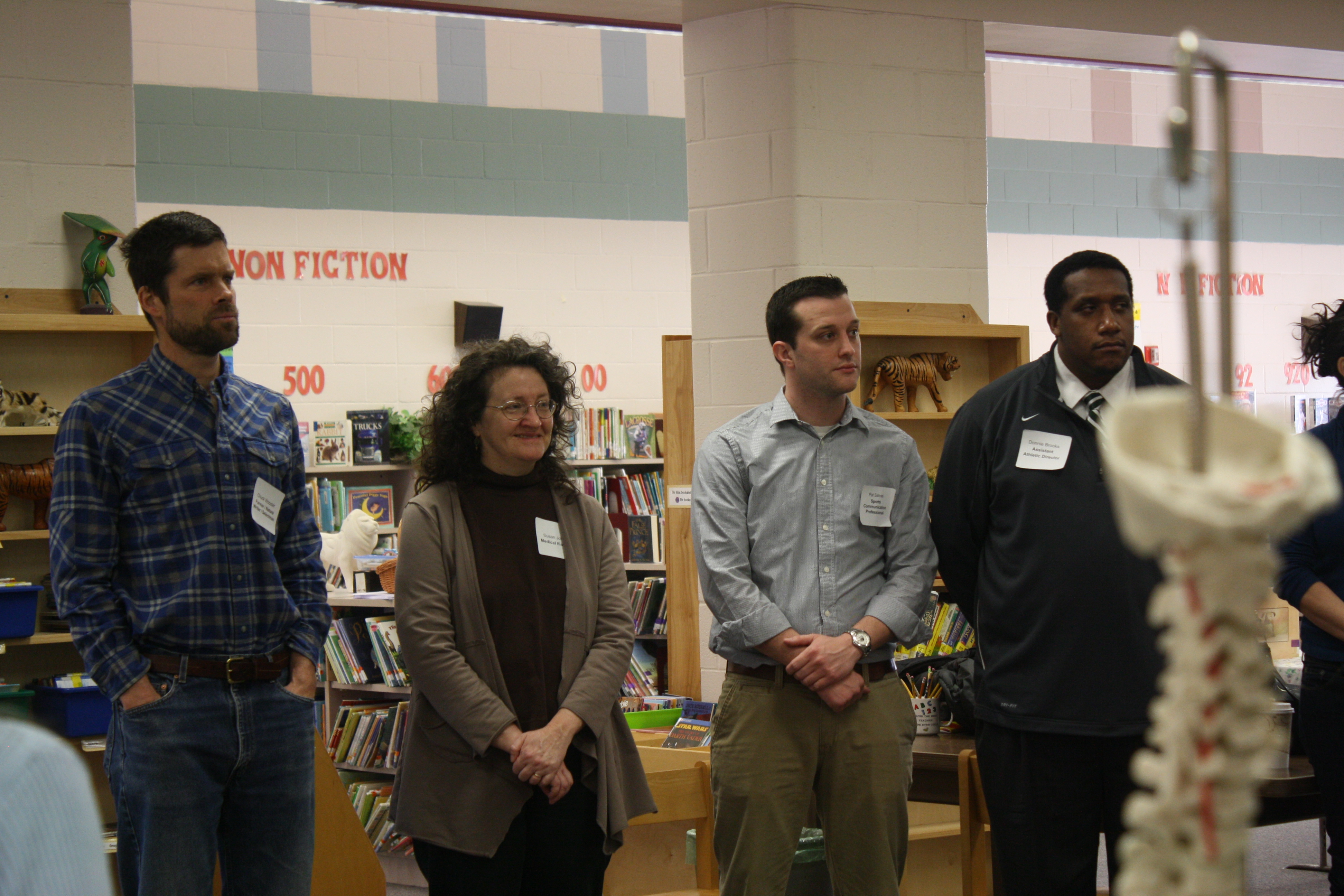
How I found them: I get my veggies from the farmer (and read his articles in the local paper), took a dance class with the medical illustrator, called the athletic department at the local college to find out who does the team stats and got the sports information director, and hit up a parent who also happens to be a college athletic director.
Identifying potential guests takes a bit of work! Because understanding and identifying multiple intelligences is an important part of the CareerSmarts unit, it’s important to make sure that each of the eight multiple intelligences are utilized in the Career Day guests’ work. You need a good variety of careers for this. Finding guests to meet this need will be more or less challenging based on your location. Our school is in a rural setting, and we don’t have a lot of employers in our area. However, we are lucky enough to be near Dartmouth College (although in many ways, our community is a world apart from Dartmouth!) Utilizing employees from a nearby college opens up the possibility of guests with some very cool careers! I have also had success with contacting the human resources departments of local companies and asking for their help in identifying willing participants with interesting careers. To round out the guest list I call upon my family and friends, as well as those of my coworkers, and invite some of our current and previous parents too.
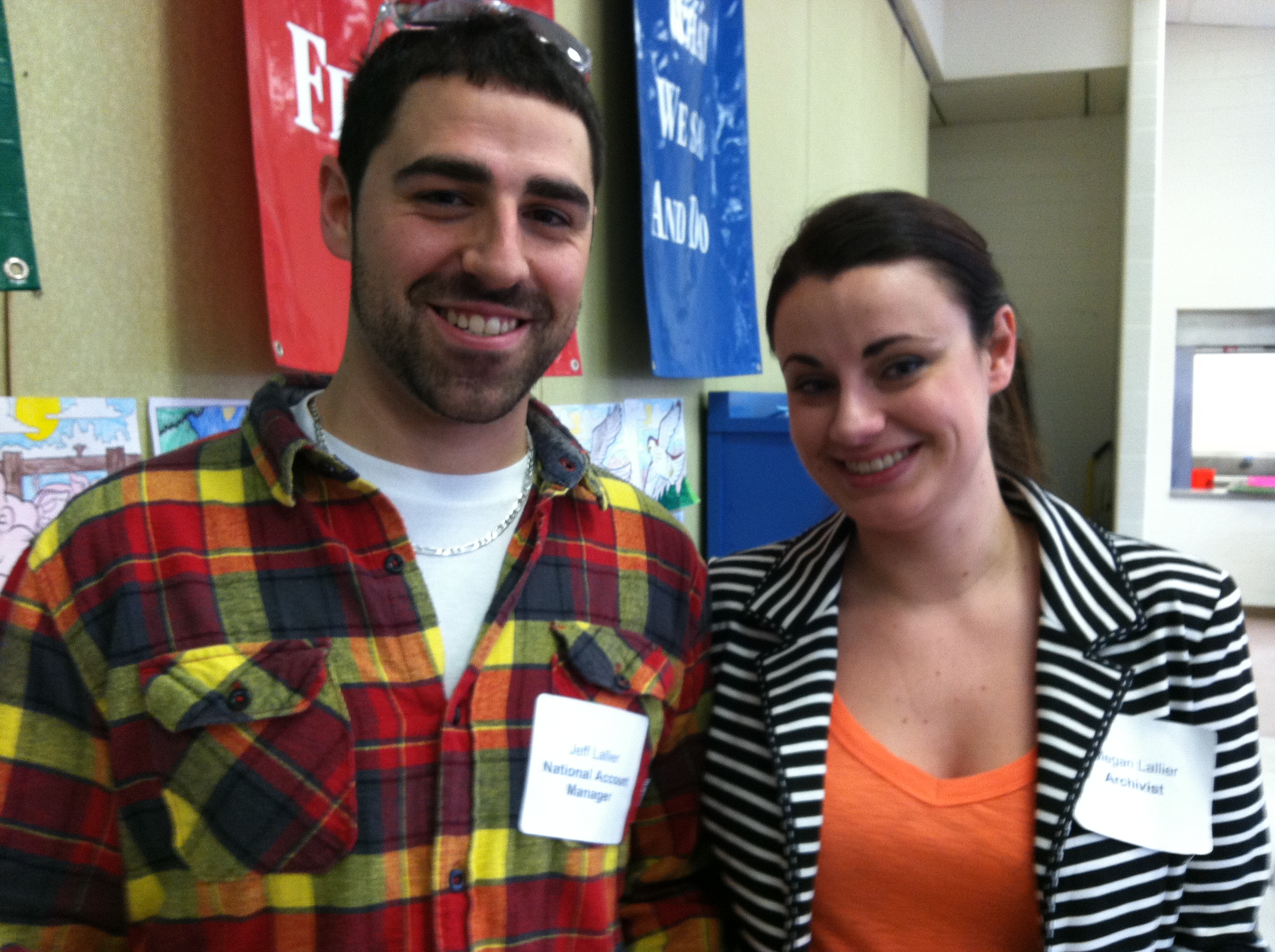
I guess you could say I started planning for Career Day in the mid 1980s, by giving birth to a future national account manager for Burton Snowboards and the future head archivist for the Ancient Egypt Research Associates. They’re also alums of our school!
Career Day participants in our past two years (many wanted to return!) have included:
- archivist
- structural engineer
- product development manager
- writer/farmer/selectboard member (a farmer who went to Dartmouth!)
- assistant athletic director
- national account manager
- architect
- editorial assistant
- physical therapist
- ecotoxicologist
- photographer
- costume designer
- arts programming director
- sports information director
- multimedia specialist
- medical illustrator
- wildlife biologist
- cartoonist
- veterinarian
- carpenter (a carpenter who went to Cornell!)
When asked to participate in Career Day, most people erroneously expect that they are going to have to do a lot of preparation and make a presentation. This, of course, can get in the way of their willingness to participate. CareerSmarts involves active learning on the part of the kids, and so the responsibility for gathering information is theirs. I make that clear to potential guests right away to quell any concerns about having to present.
Here is the information I share with potential Career Day guests:
We are looking for people who would be willing to come to school to talk with 4th graders about their jobs – what they do, their education, how they got onto their particular career path, and how their work relates to their interests now and when they were kids. Career Day will occur toward the end of our CareerSmarts unit, during which the kids are learning about multiple intelligences, researching careers, and making connections between their own interests and education and the working world. Our guests don’t need to do much to prepare, just show up and be willing to answer questions about your job and education.
At the beginning of Career Day, we will introduce our guests to the whole fourth grade in a large group; guests will just have to say their name, job title, and relationship to our school (if any). Guests will then be interviewed by three different small groups of 2-4 kids. The responsibility will be on the kids to elicit and gather information, so it will mostly be conversational, with time for some “show and tell” in the smaller groups. The kids will be on a mission to find out about our guests’ work, education, interests, and how what they were interested in as a kid may have influenced their career. They will also be making educated guesses about which of our guests’ multiple intelligences are particular strengths.
Our guests would be most welcome to bring anything related to their work that they could show the kids, either information, pictures, or video on a computer/tablet, or tangible objects. A photo of you in your work environment would also be great.
Preparatory Lesson
In the Professionalism and Interviewing Skills lesson kids practice, practice, practice! They have known since the beginning of the unit that we will be having Career Day, and they are excited for it, and for the opportunity to welcome guests into our school in a very grown-up kind of way. For the first 10-15 minutes of the class, we go over what it means to behave in a professional manner and why it is important. I do some role playing, first making a less-than-impressive first impression – “dead fish” handshake (which always elicits “ewwwws” and cures limp hand syndrome), poor eye-contact, and flat, quiet tone of voice – and then model the expected behavior, so that they can see the difference. We take apart the actual mechanics of a good handshake – how to extend your right arm, grip the person’s hand in the correct way with the right amount of pressure, how much to shake, and how long to hold on. Then we practice making eye contact and smiling while shaking hands. We practice scripts for the beginning and end of the interviews: “Hi, I’m _________.” [Wait for response.] “Thank you for coming to Career Day.” “Thank you for telling me about your career.” Then we layer all those skills together and practice, all the while keeping the urge to be silly in check. I tell them that it’s good practice for someday when they will be interviewing for a job or for college; they take it really seriously!
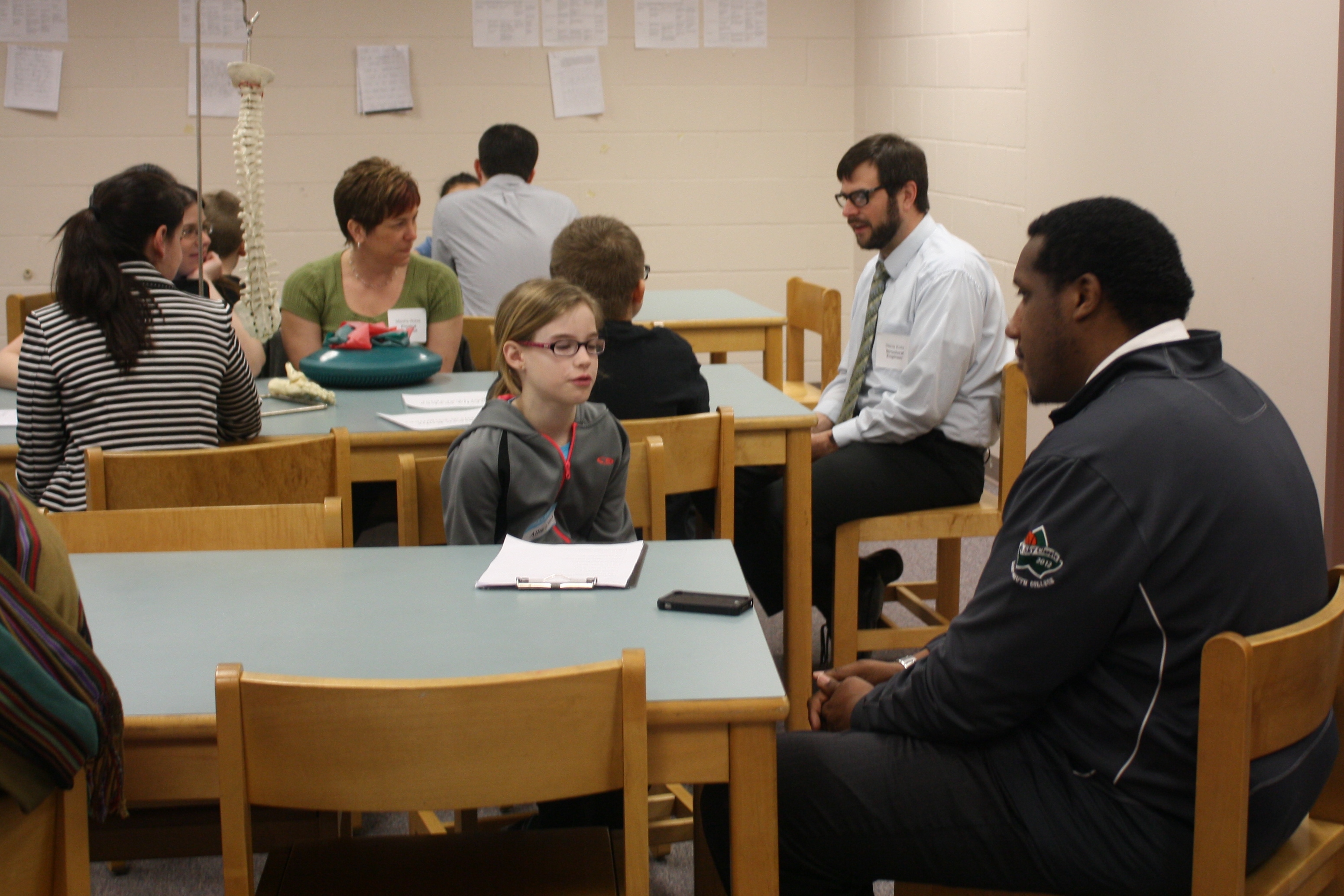
Ambassadors have really honed their professional skills. Not only do they have to conduct themselves professionally during the interviews, they also serve as individual personal hosts to Career Day guests, so have to be able to converse with them before the event gets started.
Once we’re all in professional mode, we begin the practice interview session. This interview runs exactly like the Career Day interviews will, except that it takes place in a large group rather than a small group setting. We use the classroom teacher as our guinea pig interviewee, and the kids take turns asking the questions from the Career Day Interview Form. (If you don’t have a teacher available, you can be the guinea pig as well as the facilitor). I give cues as needed to remind kids about speaking in a professional manner (loudly enough, and with eye contact, before and after they read the question). As the teacher gives her answers, the students write down information about their responses on the form. The kids really enjoy this. Not only do they feel more ready for Career Day, they also think it’s pretty cool that they’ve learned so much about the teacher they thought they knew so well!
In the last couple of minutes of the class, I have the students select their top eight (of 17) choices for who they’d like to interview. Having them make this many choices gives some idea of their interests and also gives a lot of flexibility for scheduling the interviews. They’re all bound to have at least one of their “top” choices in their mix of three interviewees! Sneaky? Yes. Practical? Also yes!
Getting Ready for the Big Day
Here are the things you need to have prepared in advance:
- Space for interviews. We use classrooms and the library, with no more than 4 interview stations in each room, to keep noise and distractions to a minimum.
- Space for opening remarks and introductions that will accommodate the full group.
- Space for a reception at the end of Career Day.
- Signs with guests’ career titles outside of each interview room to assist with movement between interviews.
- Parent volunteers to help check in guests, assist in transitions between interviews, run the reception, and donate refreshments.
- Student ambassadors, one per guest, to greet guests in the lobby and escort them to their interview station to set up, and then to the location where the full group will meet.
- Classroom teachers/other staff or volunteers to supervise the interview rooms, take pictures/video, keep track of time, and help kids stay on task as needed.
- Students who usually have adult support for writing will need someone to assist them. You may need to consider this as you make your interview schedule and groups.
- Wifi password for guests in case they have online materials to share during their interviews.
- Name tags and ambassador signs (like airport greeters use) for each guest.
- Sign-in form. The parent volunteers supervise this and provide it to the office after all the guests have arrived.
- Master schedule for each guest: name; job title; interview station room number; 3 interview time slots; each listing the 2-4 student interviewers. A copy of the master schedule should be available for each parent volunteer and staff member involved with Career Day. Make sure to keep one for yourself!
- Career Day Interview Forms – stapled together in packets of three for each student. I write in the job title at the top of each form, so that the kids know exactly who they are supposed to be interviewing in each time slot. This takes some time, but it makes the interview transitions go much more smoothly. I hand these out in the morning of Career Day. I have the classroom teachers go over them with the kids, and also have them review the professionalism skills they learned in the interview prep lesson. The kids need to bring a pencil, and a clipboard makes things easier.
When you’re this prepared, things should go fairly smoothly. The ambassadors assemble in the lobby and hold signs with their guest’s name. As each guest arrives, the ambassador brings him/her to the sign-in table, where parent volunteers help them get signed in, give them a name tag, and remind the ambassador what room the guest’s interview station is in. The ambassador and guest go to the interview station for any set up. They then go to the large meeting space, where the ambassador and guest talk until it’s time to start.
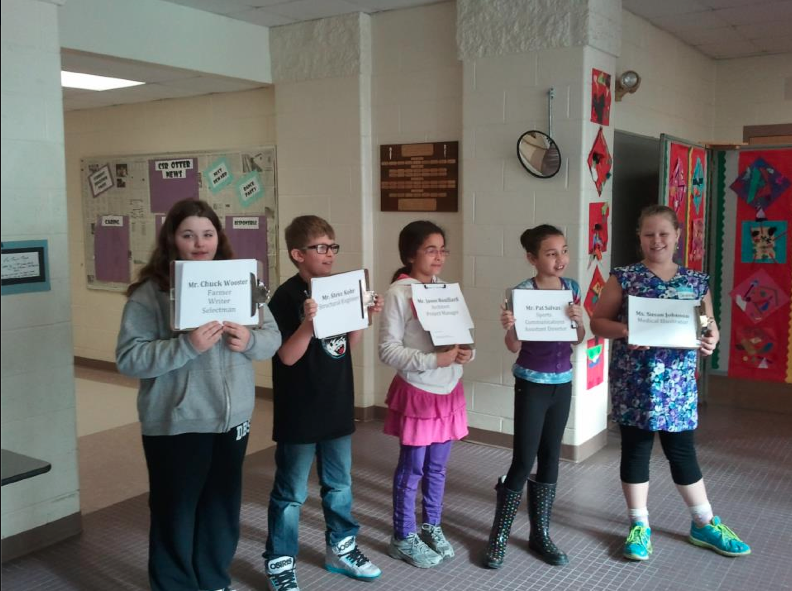
Ambassadors waiting to greet Career Day guests. Perhaps someday they will put themselves through grad school by being airport limo drivers!
When the guests are assembled, the rest of the students arrive for the opening of Career Day. I do a general introduction, and guests introduce themselves by name and job title, and share any connection they might have to the school. Guests leave and go to their interview stations (parent volunteers assist if needed) while students get last minute reminders about professionalism and completing the interview forms. Students are then dismissed to their first interview. Adults supervising the interview spaces help the interviews get started and (if needed) stay on task, make sure kids are filling out interview forms, take photos/video, give a few minutes warning before the end of the interview time, and dismiss kids to the next interview. At the end of the last interview, the kids in that interview group help their guest pack up and escort him/her to the reception.
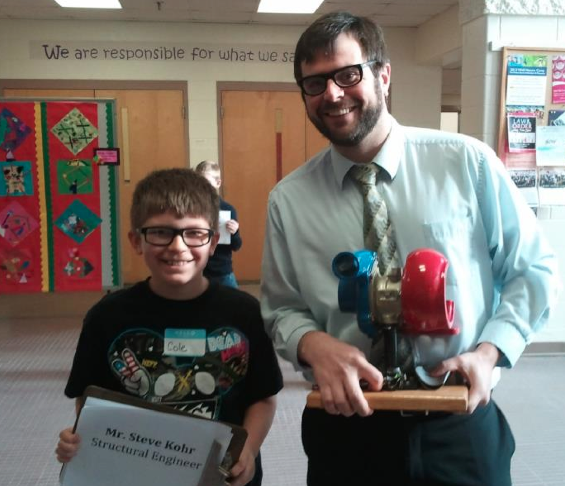
This guy was really interested in learning more about being an engineer, so I chose him to be our guest engineer’s ambassador. The fact that they looked alike, and have similar taste in glasses was a total surprise!
Following the reception, I collect all the interview forms; the kids will need them for the next lesson, when they make career trading cards featuring the guests. The students write thank you cards/notes to the three guests they interviewed. I send my own email thanks to the guests, parent volunteers, and involved school staff, and put the students’ cards/notes in the mail. Then I treat myself by going home at a reasonable time and a relaxing evening, because I’m tired, but in a really good way!
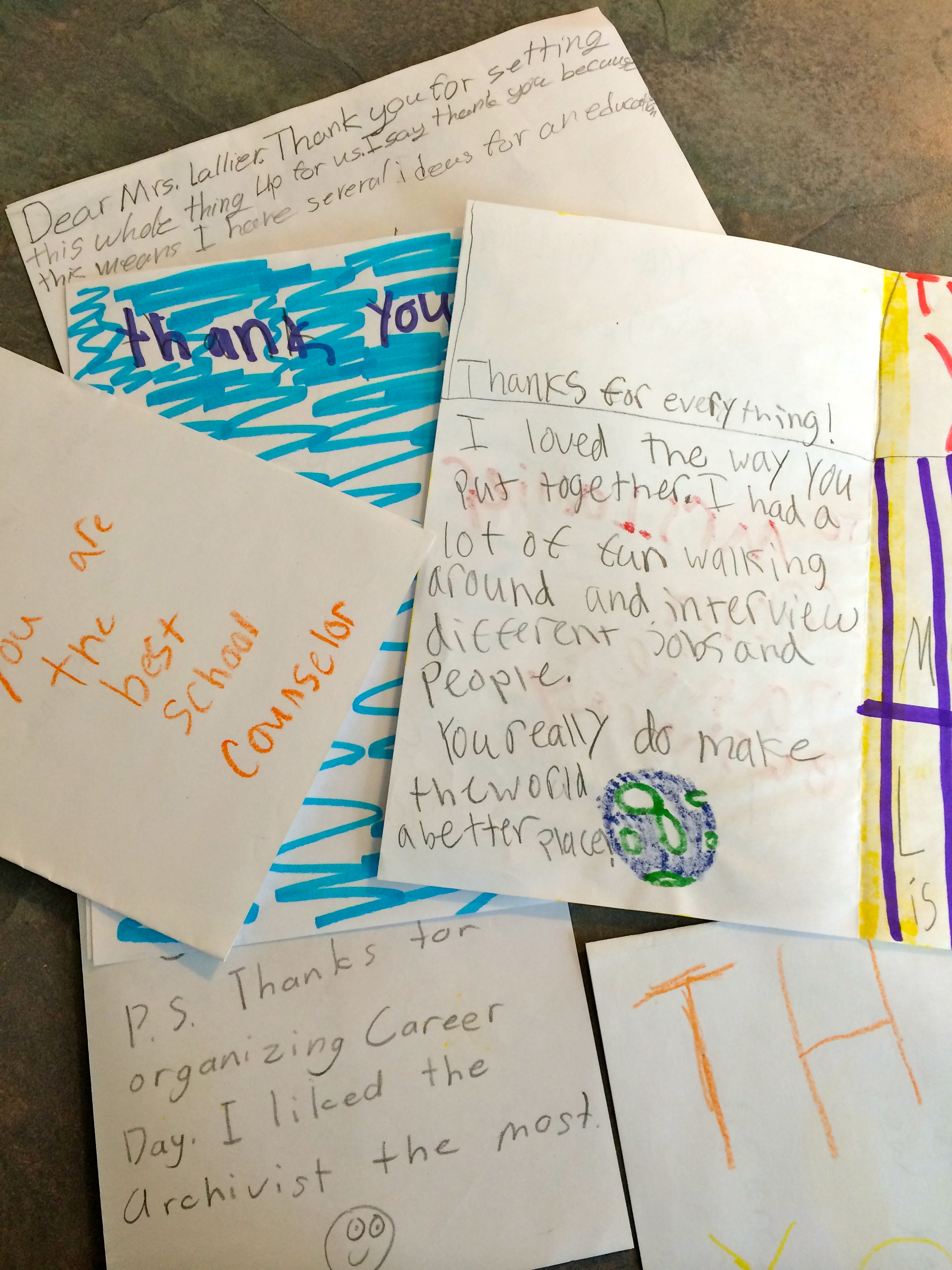
I found these surprise notes to me tucked into the pile of 132 thank you cards the kids wrote to their Career Day guests.
The kids absolutely love Career Day, and it’s a wonderful learning experience. The guests have a great time too, and have given lots of wonderful feedback:
“I was so impressed today,”
“Please extend my gratitude to everyone who participated in Career Day. The thank you notes and cards were so well written! Everyone was well prepared and attentive. I hope to take part another year.”
“Career Day seemed like a huge success and everyone had really interesting jobs. The kids did a FANTASTIC job being professional.”
“Thanks for including KAF in your Career Day—I think I had as much fun as the kids. All the Fourth graders I interacted with were very polite, interested and serious! It was easy to see how much preparation went into the day.”
“I had a wonderful time with them. As much fun was watching their faces light up with other volunteers with whom they strongly identified. This program adds a light to the path of their professional aspirations; a job superbly done by the program coordinators.”
The best feedback is the fact that guests are excited about and willing to come back and/or refer other professionals for future Career Days; more than half of our guests this year were returnees. It’s also lead to some great community connections – I have a fabulous undergraduate intern this spring who was sent my way by one of our guests from Dartmouth, and one of my students has an ongoing opportunity to attend performances and rehearsals with international dance companies that appear at Dartmouth’s performing arts center!
I have so many favorite anecdotes and responses from kids, teachers, parents, and guests about Career Day, but here’s one that’s very special: A kid who insisted from the beginning of the CareerSmarts unit that he didn’t need to do any career research because he was going to go straight into the NBA out of high schoolwrote me this surprise thank you note after Career Day:
Dear Mrs. Lallier,
Thank you for setting this whole thing up for us. I say thank you because this means I have several ideas for an education.
Like I said: So worth it!
You might also be interested in:
My Multiple Intelligences: The First Stop on the CareerSmarts Journey
CareerSmarts Task 2: Web-Based Career Exploration
Kid-Created Career Trading Cards


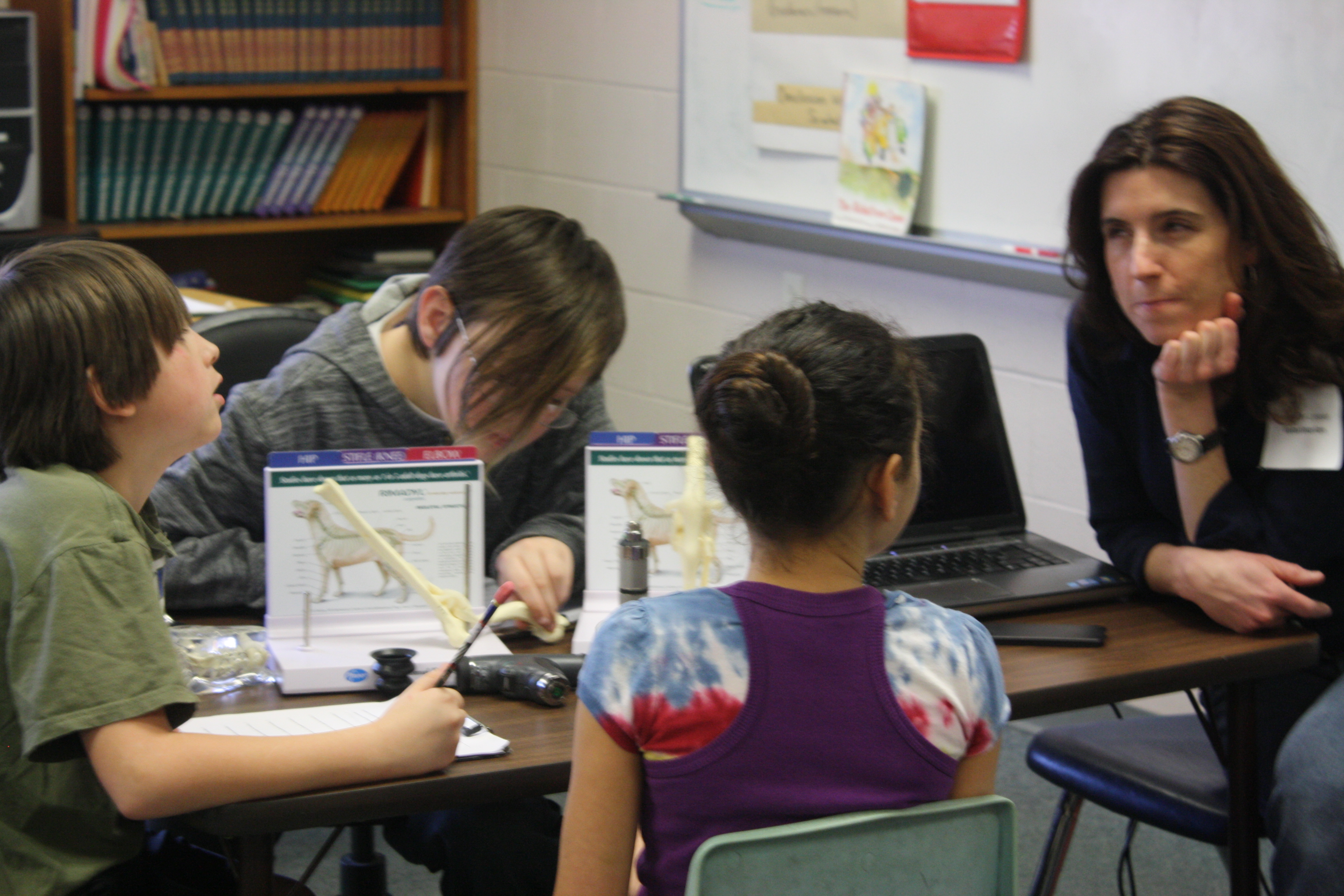
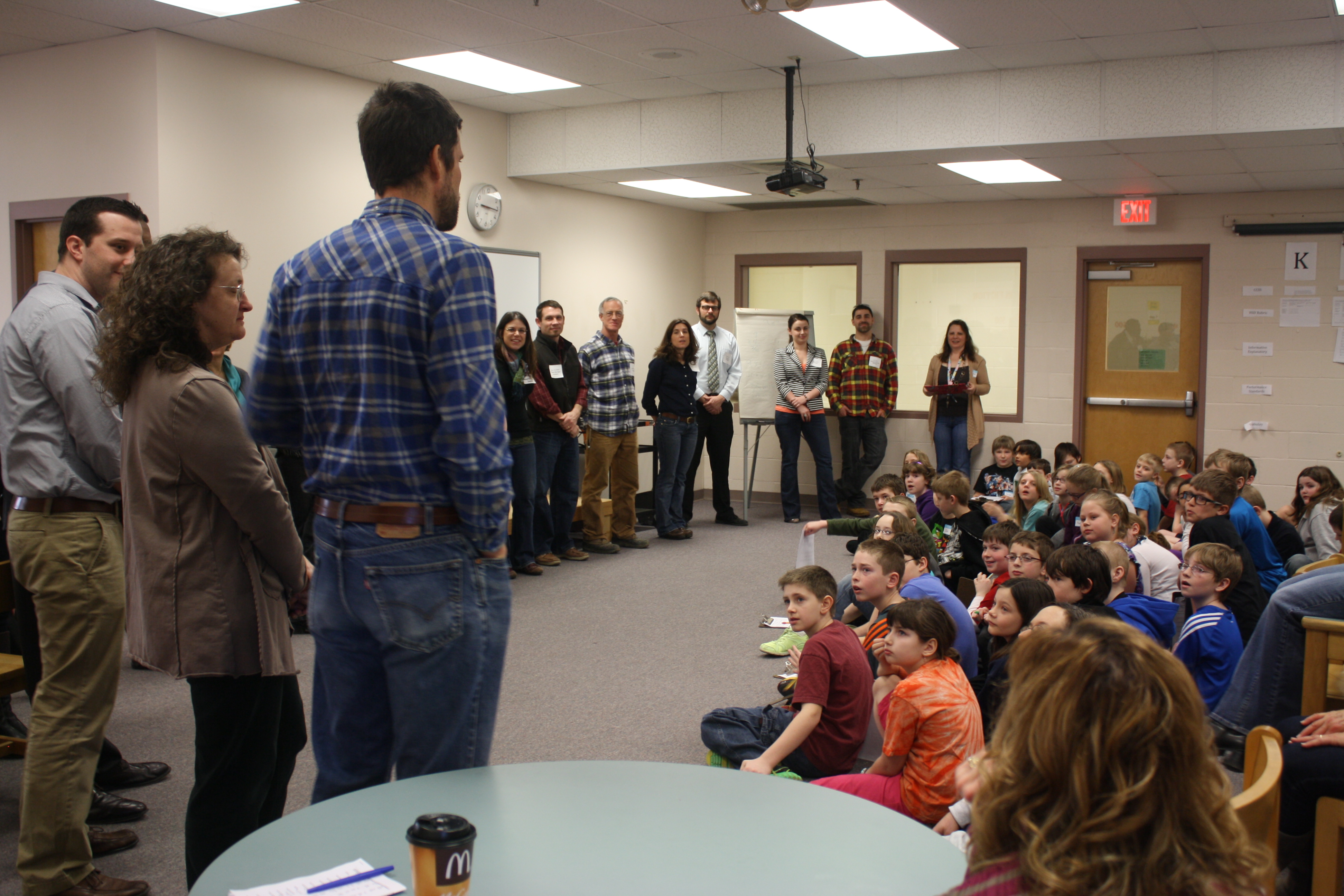
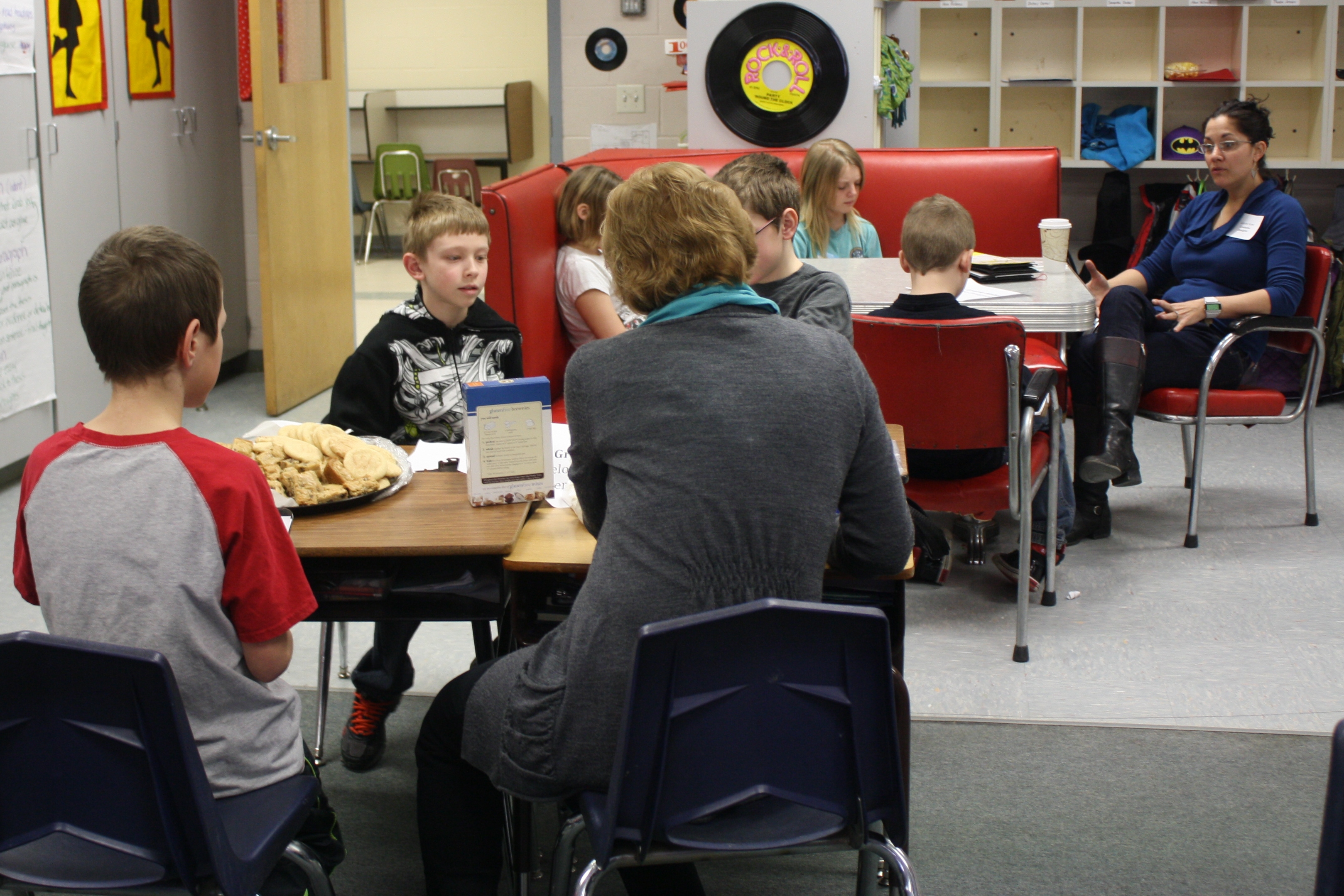
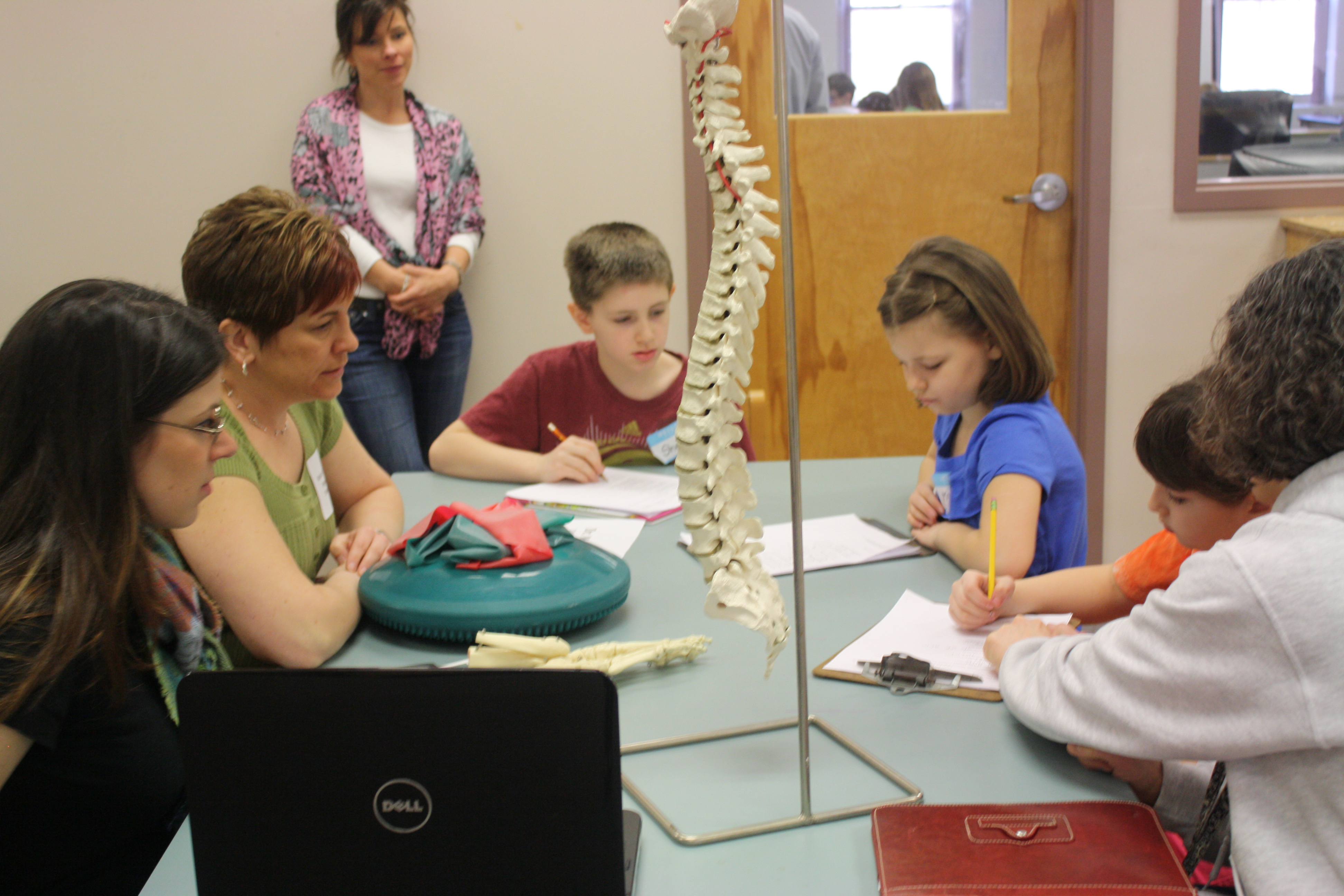
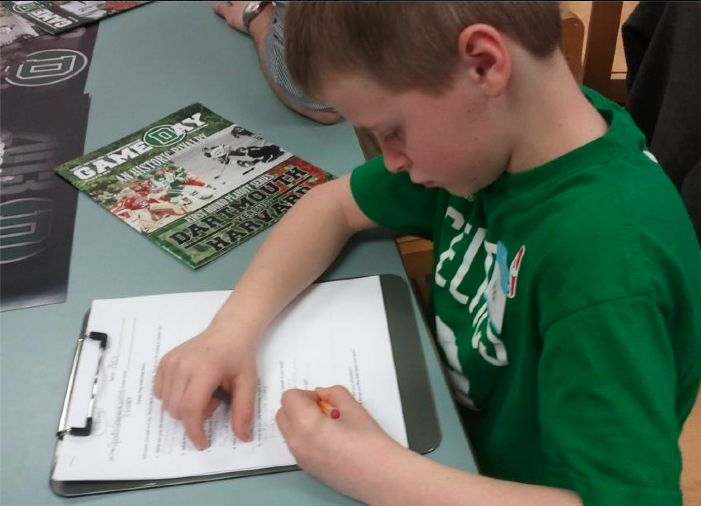
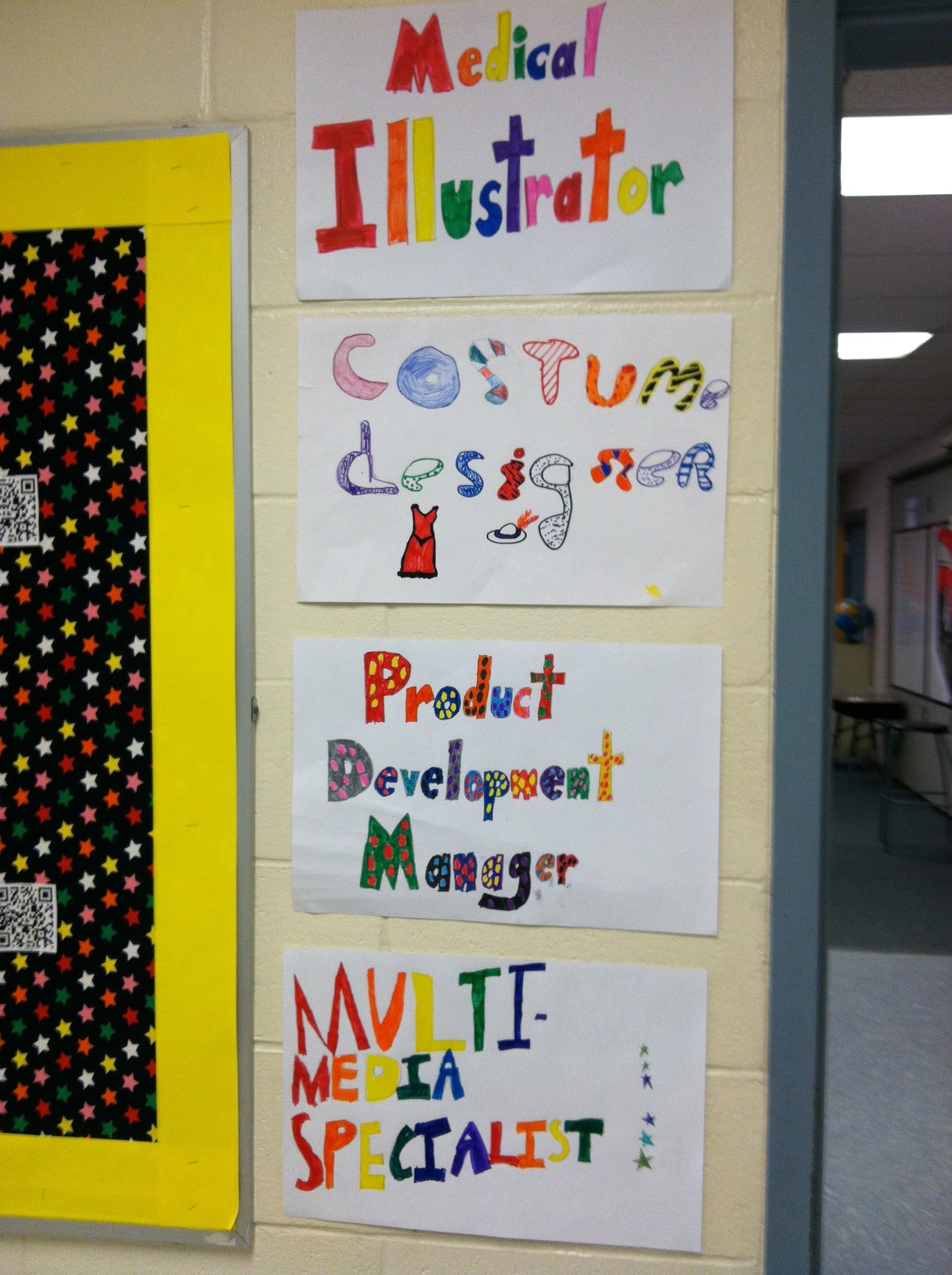
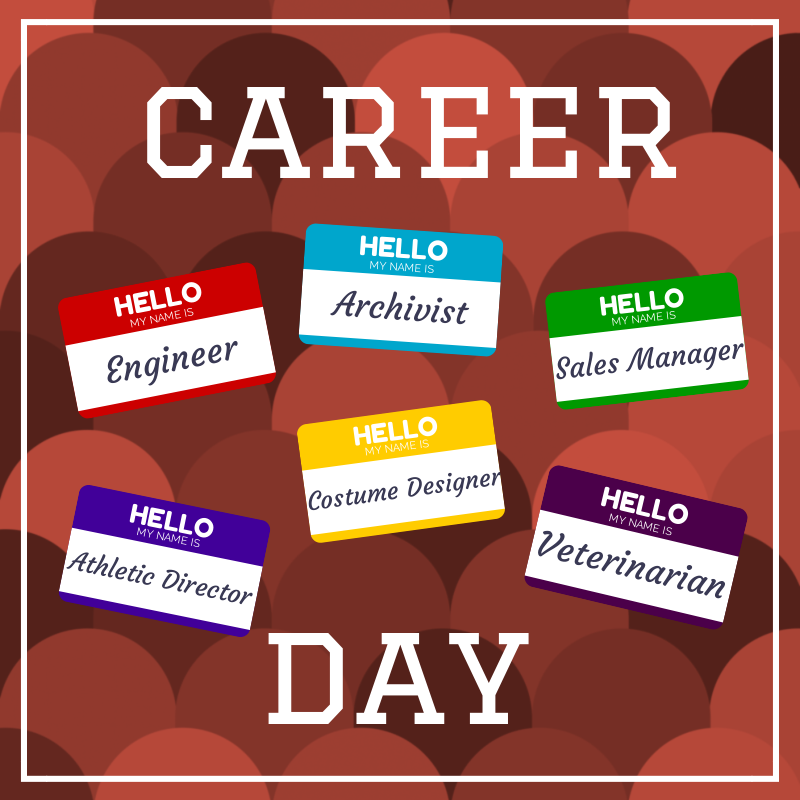
Rebecca, that sounds like such an interesting and rewarding day for everyone involved! Thank you for giving so many details about how you organized it.